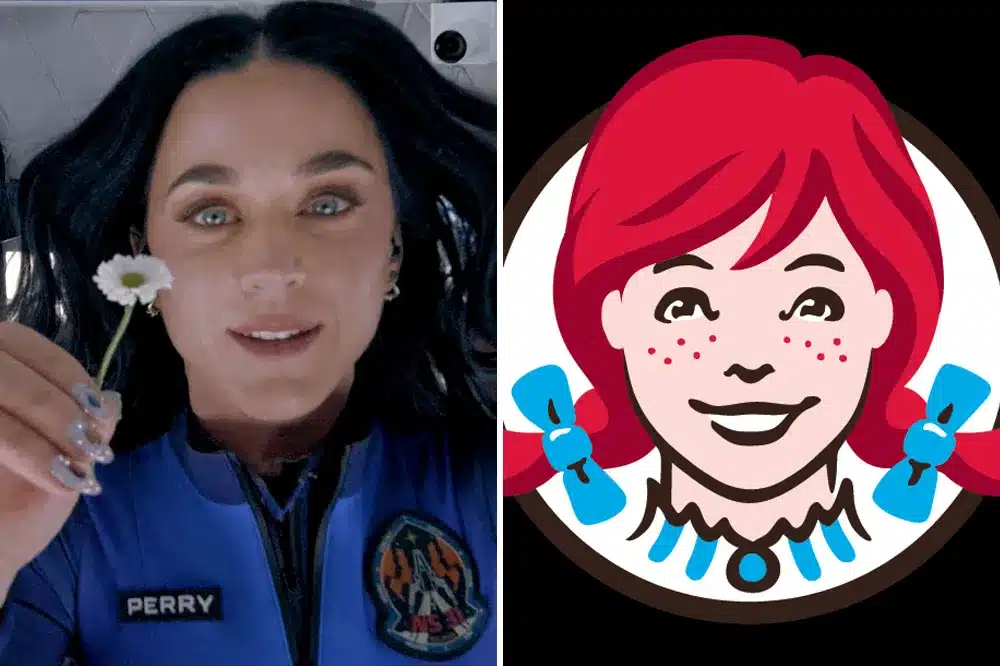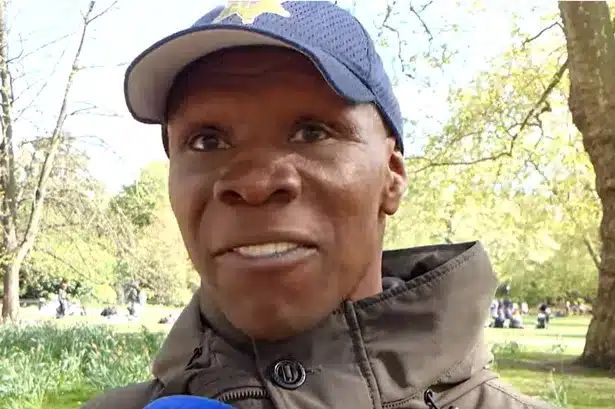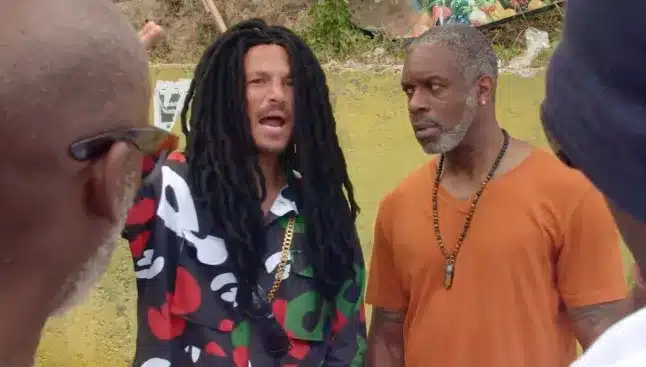‘Music is my job and I love it, but there is a line where people just treat you like shit. I’m a human too and if you’re being rude as fuck to me, then obviously that’s going to piss me off. After a few years of being used and abused, it just felt like something we didn’t want to do anymore.’
Featured Image VIA
Citizen singer Mat Kerekes sounds like a man who was tired of the life of a global touring rockstar and you can’t exactly blame him. The past seven or eight years have consisted almost solely of gruelling recording processes for three separate records – the critically and popularly lauded ‘Youth’, ‘Everybody Is Going To Heaven’ and ‘As You Please’ – and the subsequent two to three year touring cycles associated with each one left Mat and the rest of the band severely burned out.
Kerekes explains that it was a process that almost ended the band, especially during the most recent cycle for ‘As You Please’. ‘Sometimes it’s exhausting listening to people tell you that you have to do things when you’re the one actually doing them and they’re not really doing anything’ he says, which I’m sure is an idea that anyone who has ever worked for anyone else in any capacity can relate..
Although it might seem like everyone experiencing the life of a touring band is consistently living everyone’s dreams, sometimes the relentless 24 hour grind is a lot different from the one hour a day your average fan will see them rocking out on stage and having the time of their lives. For example, Kerekes says that he was so beat down from the lifestyle that he spent most of the time that he wasn’t in the van lying down in a backstage room on his own during that final touring cycle.

Image VIA
One aspect of constant touring that really seemed to grate on Mat though was the ownership that fans felt they had over the band. Whilst he admits that for the most part connecting with hundreds of people every night who are digging what he was doing was an excellent feeling, there were other aspects that left him severely needing a break from the touring life. He cites the following story from a show in Kansas City on their last US tour as to why he needed a break:
I was really getting pissed because people can just say whatever they want to you and if you give any sort of reaction then you’re the asshole.
We’re playing a set and this person is screaming at me to play a song off ‘Youth’ for the whole set during the quiet parts and eventually I was just like ‘I am not going to play that song’.
We were going to play that song but I told him that I’m not going to fucking play that song and I told him that I didn’t care if I ever fucking played it again.
I just had a little meltdown cuz I was at the end of my rope.
At the end of another show these people came up to me and were like ‘why didn’t you play this song?’
I thought they were kidding and I was just like ‘oh next time we will’ and the girl next to him was just like ‘you sound really arrogant’
I was like ‘I don’t really know what to say here’ and then they said ‘we drove two hours to hear you play that song’ and so I said ‘well guess what I’m fucking 20 hours away from home and I haven’t been home in weeks’.
Shit like that was happening all the time. On this last tour in particular people were just savage.

Image VIA
It’s kind of surprising that there aren’t any video clips of that on stage incident given how similar recent episodes with Joyce Manor and The Story So Far have gone down, but you can understand Mat’s frustrations with the touring life after having been subjected to this on and off almost daily for the past eight years or so. He doesn’t come across as ungrateful or arrogant in this interview – and is keen to reaffirm just how lucky and grateful he is to be a professional musician many times during it – but just as someone who needed some down time away from the constant grind. He’s also another example of how the slightest negative comments can affect your mental health way more than the countless positive affirmations he no doubt receives from his work with Citizen.
This becomes even more understandable when Kerekes reveals to me that Citizen was never even supposed to be a full time career band for himself and its other members, the Hamm brothers Nick and Eric, so it’s not even like he was mentally prepared or aware of the challenges he might face. ‘I was supposed to do Warped Tour after ‘Youth’ came out and I was going to quit to study mechanical engineering, but then I got my first pay cheque and I thought we would ride it out for a little while longer’, he laughs.
That ‘little while longer’ became six years and two more albums and at that point, it sounds as if everyone in the band was exhausted of living in a van for eight months of the year and questioning if they even wanted to do it anymore. Citizen finished their tour with AFI and Circa Survive and headed back home for some much needed downtime and soul searching about whether they even felt the need to make another record.
Eventually they came to the decision that they would – but only if it was on their terms – and the end result is possibly their best record yet in the form of ‘Life In Your Glass World’.
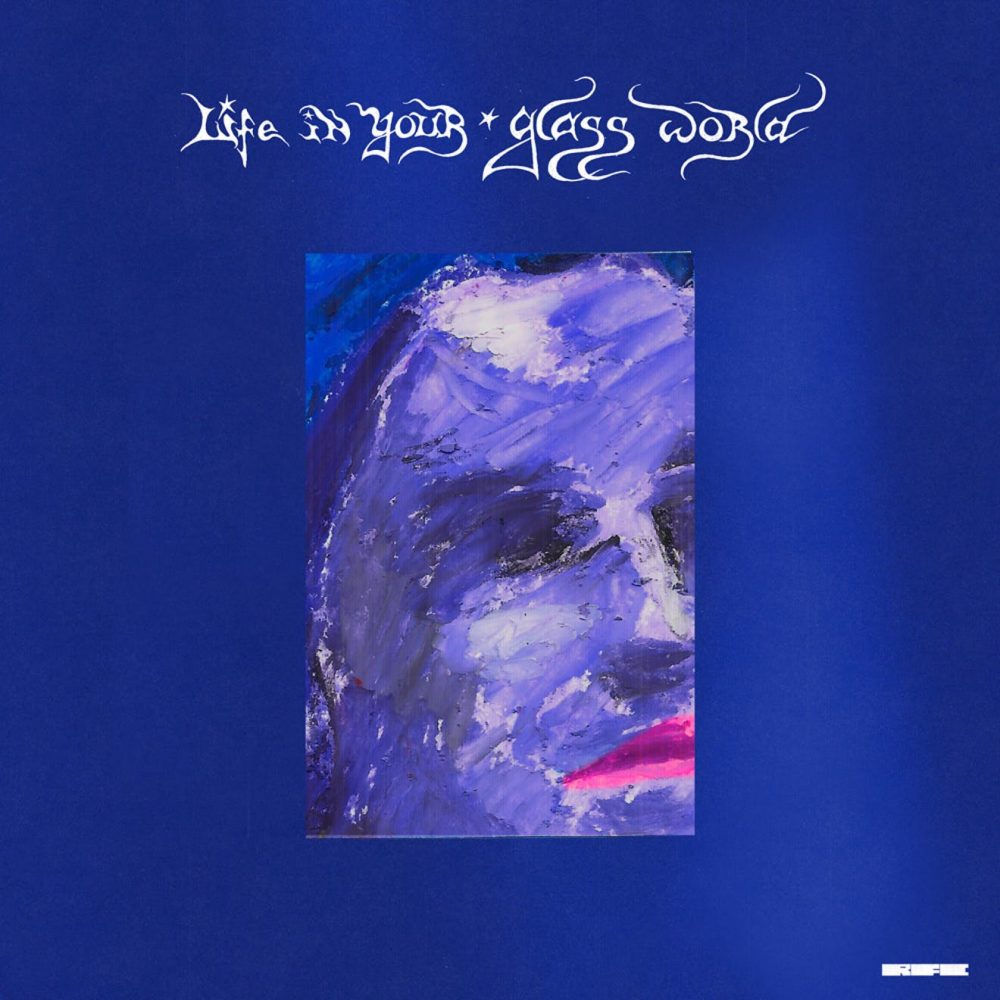
Image VIA
Inspiration struck during this period thanks to a totally new approach to songwriting from Kerekes and the Hamm brothers which Mat explains: ‘We were all really exhausted from the ‘As You Please’ touring cycle and just uninspired and not really stoked about music. It was like ‘man, what can I do to feel excited again?’ and we just kinda decided to reverse the songwriting process and it totally worked.’
If you’re not sure what ‘reversing the songwriting process’ means in this context, then it’s a fairly simple idea. Kerekes tells me that with the majority of songs that he’s written in his life, he would normally start with an acoustic guitar and a vocal melody and then would gradually build up the other instruments around that, but for ‘Life In Your Glass World’ he would start almost every song with a drum beat and a bassline and add in the other elements after that ‘driving beat’ – his words not mine – was established.
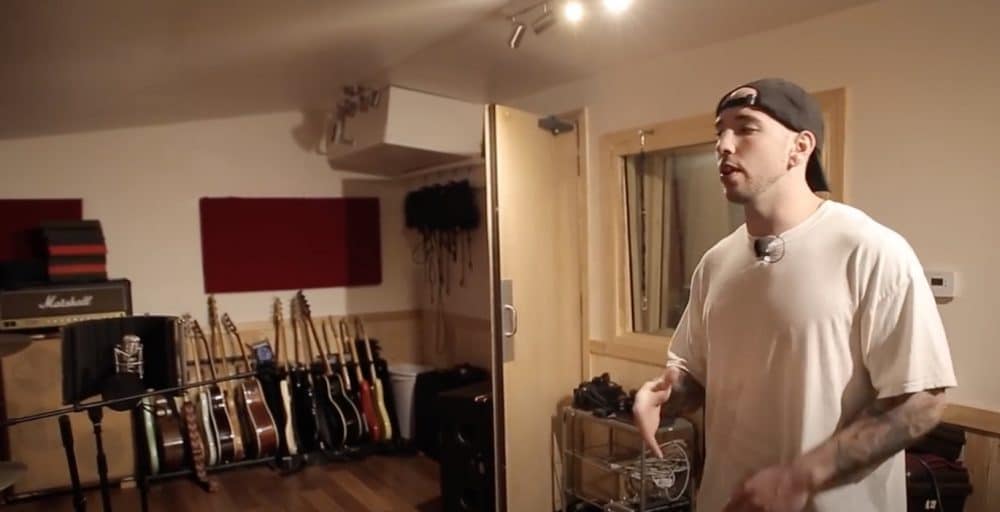
This is never more apparent on lead single ‘I Want To Kill You’ which features what can almost be described as an indie disco beat almost reminiscent of Placebo that fully drives the song along and doesn’t really sound like anything that they’ve ever released before. Indeed, Kerekes says that this was the idea behind this album and he specifically wanted to move away from the ‘droney big rock’ drum beats on ‘As You Please’ that had been informed by artists such as Nine Inch Nails and Marilyn Manson – ‘I know he’s cancelled now, but he was a big influence on the last record’. He reveals that collectively the band was listening to way more dancey indie stuff like Bloc Party and Gorillaz whilst they were writing for this album and this was consciously the kind of album that Citizen were trying to write this time around.
The results speak for themselves and are accompanied with an instantly memorable music video. Mat explains that sometimes in the past he felt as though Citizen had missed the mark in their promo videos by relying too much on performance – often at the behest of their label or management – and that he personally thinks that music videos need to be visually stimulating and interesting and that ‘nobody wants to see a band pretend to play their instruments and rock out any more’.
This has undeniably been achieved in the video below, directed by long time friend of the band Mason Mercer. Citizen themselves don’t even appear in the video and it instead focusses on a bunch of weirdly attractive people working out in a forest covered in neon lights, similar in style to that of an infomercial – that pretty much hits the nail on the head for Mat’s brief right? Wait until you see what it actually looks like below:
Visually stimulating, right?
Anyway, even though Citizen had recovered some of the love for music thanks to this new approach to songwriting, there were still other changes that they needed to make in order to be fully satisfied with the future of the band. Previously, they had always decamped from their hometown of Toledo, Ohio for anywhere up to six weeks to record each of their albums with superstar Philadelphia producer Will Yip in his legendary Studio 4 recording facility, but for ‘Life In Your Glass World’ they decided against this method. Instead, they made the decision to track the album in the Kerekes’ own home studio – that Kerekes had built in his own garage to mastermind his solo record ‘Ruby’ back in 2018 – and this was arguably a bigger change in the writing and recording process than the different emphasis on the songwriting process.
Nick and Eric were happy with this idea after hearing how great ‘Ruby’ had ended up sounding and they felt like this less rigid environment would lead to more relaxed and creative recording process. And so the band simply drove round to Kerekes house and recorded their parts whenever they felt like it over a four month period from December 2019 to March 2020. ‘It took longer than any other Citizen record, not because we were working our asses off on it, but just because we were pretty lazy’, Kerekes jokes, but he also makes it clear that it was the most fun and rewarding recording experience Citizen have ever been involved in.
I want to make it clear that we don’t have anything against Will Yip.
He really makes you work for the takes and that’s good because he gets good stuff out of you but it’s honestly very exhausting. I just tend to press record and whatever happens, happens.
If it’s atrocious then yeah I’ll redo it, but I think there’s some kind of magic in not being perfect.
If the take is good enough, then it’s good enough to be on the record.

Image VIA
This was just one of the reasons why the album sessions were a lot less intense and more laid back than the environment that Citizen had experienced before – Kerekes even explains that sometimes if they didn’t feel like doing it or one of them had some personal stuff going on, then they would just cancel it and come back and do it again when everyone was ready. That certainly sounds like a much calmer and easier process than being holed up in a recording studio for six weeks with a deadline looming and it seems like this is one that suits the band more and in particular Mat himself, especially given his recent listening habits.
Although he wasn’t listening to them in the run up to these recording sessions and it’s a more recent development, Mat cites the example of The Rolling Stone as a band that he often hears inconsistencies in their recording, such as Mick Jagger singing off key or the velocities of the drum hits and the guitars being slightly off. He was keen to create a less than perfect regimented recording environment for ‘Life In Your Class World’ so that he could capture these character traits in the tracking to really help flesh out the recordings and give them their own personality. ‘We really didn’t want to sound perfect and we wanted to capture that vibe, no punching in guitars. Just however the chord transitioned, we just kept it. It feels pretty organic and I think that’s pretty cool.’
(The band have actually just released a mini documentary into the recording of the record onto the Run For Cover YouTube channel – directed by Alex Henery of Basement – so if you’re interested in any specific aspect of the recording process then you can take a quick look at that when you get a chance. Some really interesting and insightful stuff in there about the tracking an album that anyone interested in production would enjoy.)
I’ll be honest, listening back to ‘Life In Your Glass World’ I can’t really notice any of these off key or off beat moments myself – some of the drums even sound like they mat have been recorded on a drum machine as they’re so consistent throughout the track and I mean that as a compliment, not a diss – but obviously the producer/songwriter is always going to have a keener ear for these things than me. What gets me more when listening to the record though is how different each song sounds from each other and that’s something that is often achieved when a traditional producer isn’t hired to oversee everything as they tend to mould everything together into one coherent whole.
As with most aspects of Citizen’s creative decisions though, whilst this might not work at all for other bands, they’ve once again managed to turn it into a massive plus for this record rather than anything that anyone would use to describe it negatively. Every song sounds different and has its own distinct sound and vibe and is fully allowed to breathe in its own right which may not have happened under the vigilant eye of a hired gun producer, be that Will Yip or anyone else out there.
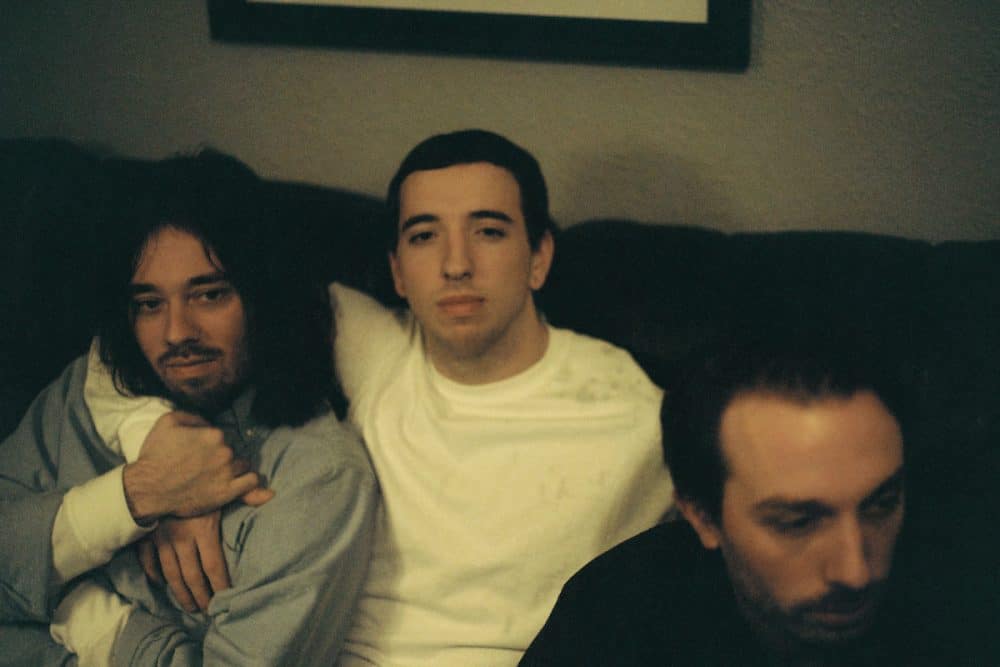
Image VIA
One song that exemplifies this idea on “Life In Your Glass World’ in this respect is called ‘Fight Beat’ which Kerekes himself actually identified himself during our talk as an example of ‘one of the more off the wall songs’ that Citizen has ever written and whilst that’s definitely true, it just might be one of the best ones they’ve ever recorded as well. It’s hard to describe what it sounds like but it reminds me almost of the Dust Brothers soundtrack to ‘Fight Club’ – I know that’s a lazy comparison because the song is called ‘Fight Beat’, but there are definitely some similar elements in it – with a bass and drum arrangement that wouldn’t sound out of place on an LCD Soundsystem or a Muse record, accompanied by Kerekes’ whispered yet aggressive vocal delivery.
Writing that down sounds like it wouldn’t work again, but this is Citizen we’re talking about and their desire to push boundaries and try out new ideas has once again resulted in one of the standout tracks on their new album. No video for this one yet, but I’m hoping it’s only a matter of time before Mason Mercer comes up with a treatment and another perfect video for the band:
With all these changes that were implemented by Citizen for the record, the talk naturally turned to whether or not the band ever seriously considered changing management or label to release it, especially with consideration to the information that Kerekes had already displaced regarding ‘not wanting to do stuff he was constantly being told to do’. Thankfully he reveals that this was never, the case and once again it was merely a case of them being burned out from a seven year touring/recording process that led him to the frustration and powerlessness that he felt towards the end of that touring cycle.
Mat recounts the following funny anecdote about how great Run For Cover have been throughout their relationship with Citizen that illustrates how there was never really any chance of them heading anywhere else for this record, despite the fact it sounded so different to their previous output:
Run For Cover have also let us do what we wanted and never questioned that and I think for a band like Citizen that is constantly reinventing ourselves that’s very important – we wouldn’t be able to do that on other labels.
Even back when we did ‘Everybody’s Going To Heaven’ – that was a very conscious left turn from Youth because we knew that we didn’t want to write Youth over and over again forever – we were like let’s just do something completely different just to kind of establish ourselves as doing whatever we felt like doing.
I remember Dane from Run For Cover was like ‘yeah, good luck with that’ and it’s funny because these people work for the label and if we were on a major they would be like ‘you can’t release these songs, this isn’t Citizen’ but they backed us fully with what we want to do.

Image VIA
This unfaltering relationship was again illustrated by the band’s choice of second single from their record ‘Blue Sunday’ as it’s arguably one of the most inaccessible on the record, but Run For Cover were seemingly happy for them to roll with it. The track doesn’t even really feature a chorus, instead centring the song around a bassline and drum beat that’s bordering on funk, with the catchiest part of the song being repeated only once and a weird distorted guitar noise in the place where the chorus should be kicking in (if you watched the documentary earlier then you’ll know that this synth was actually Mat’s voice – another example of the unfiltered creativity that the band was afforded due to recording the album themselves). That might sound like career suicide for any other band, but this is Citizen that we’re talking about remember, so again they excel at this musical methodology and come up with another stone cold banger.
Releasing a song like this as a single would be a questionable decision from most bands – even if Run For Cover were cool with them doing whatever they wanted – but the fact that they chose this one again shows everyone that this is a band doing everything on their own terms now. The accompanying video is again directed Mason Mercer and follows Kereke’s remit of ‘visual stimulation’, this time involving members of the band dressed up as hippies from the 60s/70s playing a song in a recording studio where nobody knows what’s going on and it kinda looks like everyone is tripping out on acid. Indeed, Mat tells me that Mercer handed everyone a pretend pill nicknamed a ‘Blue Sunday’ before the shoot to ‘get them in the mood’ and well, you’ll see what happened below.
Much like the video for ‘I Want To Kill You’, Mercer completely nails the vibe on this one as well, with the visuals adding another level of melancholy to the already fairly haunting and downbeat song, with the best shot being a slow pull out of guitarist Nick strumming his six string during a guitar break as the other characters at the studio lie passed out around him. Really captures the feeling and vibe of the song:
As for the future for Citizen, that’s still unwritten. Kerekes makes it clear that the band aren’t so burned out from touring that they’re not going to hit the road to support this record, it’s just obviously a case of when rather than if because of the pandemic. There are some tentative dates already booked in for the fall, but obviously you have to take these with a pinch of salt as nobody really knows whether it will be safe for bands to tour at that point.
He also reveals that the band are through with doing everything that is requested of them now and if they don’t want to do something like an interview or an acoustic session, then they’re just simply not going to do it anymore – even if it means pissing off their label or their manager or whatever: ‘Band morale is important and right now, our collective happiness is more crucial to us than record sales or YouTube views or whatever’. It’s clear that he’s not going to let that old cycle of ‘being used and abused’ as he put it creep back into their daily lives and he sounds like he’s going to be all the happier for it.
Mat also sounds positive about another record as well, although again he doesn’t really have any idea when or where that will happen, but he makes it clear that as long as he, Nick and Eric are all happy with making another record and the studio arrangement then it will probably happen – even if it’s not the same recording process as this time. He’s not even bothered if it’s not as his studio again, even though he would clearly prefer that: ‘if Nick and Eric were like hey I don’t want to record the next record at your studio then it wouldn’t offend me at all. I want the vibes to be good, I want everyone to be happy. We’re all older and that’s the most important thing these days’.

Image VIA
With that our time draws to a close and after talking to Mat for nearly an hour, it really does sound as though Citizen is in a better place than they ever have been and that the enforced break thanks to the pandemic has actually done them a lot of good, even if they were already heading in that direction with the elongated way they chose to record ‘Life In Your Glass World’. Listening to Mat talk about the band and the last few years, it really does affirm that idea that Citizen weren’t tired of playing and making music and that it was never really an option that they might walk away from the monolith that they had built, but more a case of the typical hardship that young bands face when blowing up and never knowing when to stop and take a minute because they were were scared of losing that momentum.
Citizen were constantly pushing themselves – and being pushed by their label and management and whoever – to try and take the band as far as they can and ended up falling out of love with music because they had simply overworked themselves and needed a break. It’s a story that we’ve heard a thousand times before and will probably hear a thousand times again, but thankfully in this case they were able to break through it.
With some well earned time off and a couple of adjustments – minor or major depending on how you look at them – it seems like everyone in the band in a much happier place now and will hopefully be continuing to make challenging, unexpected and surprising music for years to come. Citizen have never been a band to follow anyone else’s lead in their music and it seems like they’re taking this same philosophy into the business and production side of the industry as well now.
With these changes, it seems like they’ll be making and playing music for many years to come after his latest effort – just don’t try and predict what it’s going to sound like in the future or how they’re going to approach the writing and recording process. Mat points to a quote from a David Bowie interview that he really likes as to why Citizen constantly reinvent themselves on every record and seem determined to keep doing so and it seems like the perfect way to end this interview as well, given how the band has re-energised itself by making the positive improvements discussed in this article:
Bowie once said if you’re listening to me then you’re listening to all my favourite bands, I’m not doing anything new.
And I like that a lot, at the end of the day it’s whatever makes you happy.

